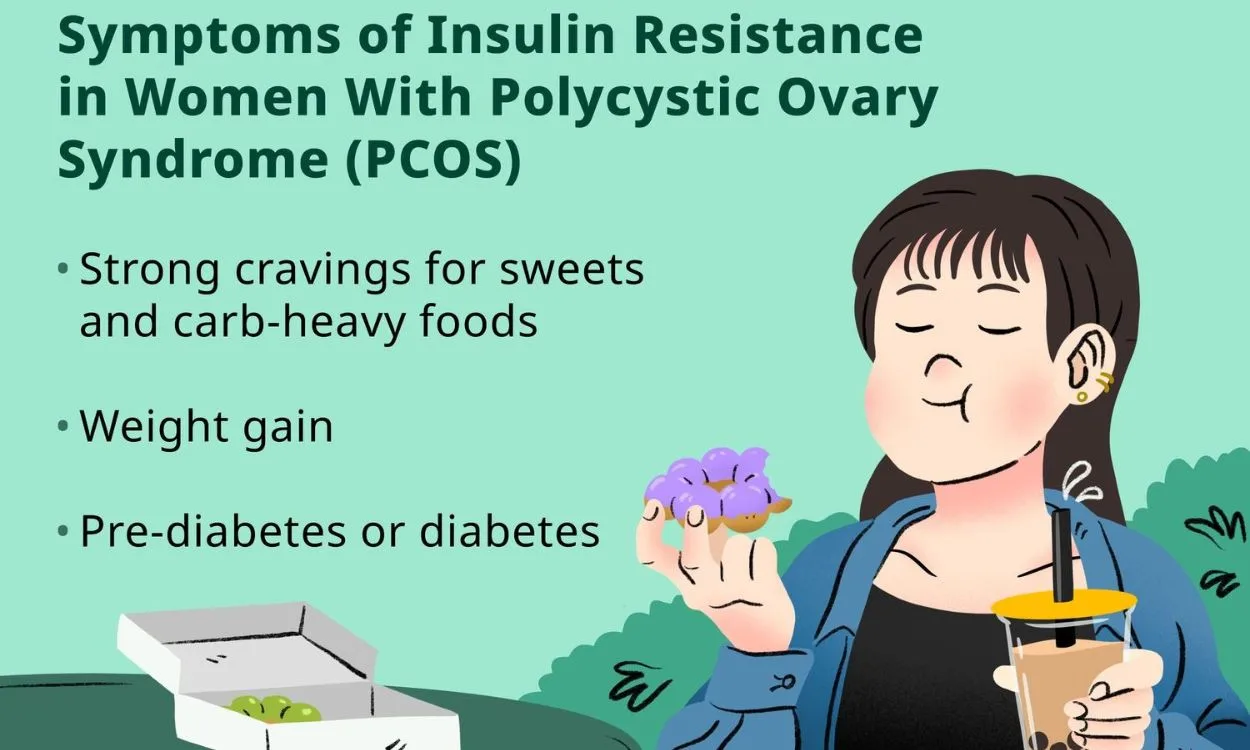How PCOD Affects Insulin Levels and Glucose Tolerance
Polycystic ovary syndrome (PCOS) is a common hormonal disorder among women of reproductive age. It is characterized by irregular menstrual cycles, excess androgen levels, and polycystic ovaries. PCOS can also lead to insulin resistance, which affects how the body metabolizes glucose, potentially leading to type 2 diabetes. Here’s a detailed look at how PCOS affects insulin levels and glucose tolerance:
PCOS and Insulin Resistance
- PCOS often leads to insulin resistance, where the body’s cells don’t respond effectively to insulin, forcing the pancreas to produce more insulin to maintain normal blood glucose levels.
- The excess insulin can cause the ovaries to produce more androgens, leading to symptoms such as acne, excessive hair growth, and irregular periods.
- Insulin resistance can also lead to weight gain, making it more challenging to manage PCOS symptoms and increasing the risk of developing type 2 diabetes.
Impact on Glucose Tolerance
- Impaired Glucose Tolerance: Women with PCOS are at an increased risk of impaired glucose tolerance, a condition where blood sugar levels are higher than normal but not high enough to be diagnosed as diabetes.
- Risk of Type 2 Diabetes: The combination of insulin resistance and impaired glucose tolerance significantly elevates the risk of developing type 2 diabetes in women with PCOS.
- Challenges in Pregnancy: PCOS-related insulin resistance and glucose intolerance can also pose challenges during pregnancy, increasing the risk of gestational diabetes and other complications.
Managing PCOS-Related Insulin Resistance and Glucose Intolerance
- Lifestyle Modifications: A healthy diet, regular exercise, and weight management can help improve insulin sensitivity and glucose tolerance in women with PCOS.
- Medical Interventions: Some medications, such as metformin, may be prescribed to help manage insulin resistance and regulate menstrual cycles in women with PCOS.
- Regular Monitoring: Women with PCOS should undergo regular monitoring of glucose levels and insulin resistance, especially if they have additional risk factors such as obesity or a family history of diabetes.
Fitpaa’s Approach to PCOS Management
- Fitpaa offers a comprehensive approach to managing PCOS and its associated metabolic challenges, including insulin resistance and impaired glucose tolerance.
- Through personalized Metabolism Assessment and Fitpaa Capsule, individuals with PCOS can receive tailored guidance on nutrition, exercise, and behavior therapy to improve their insulin sensitivity and achieve better glucose control.
- Fitpaa’s real-time guidance technology and support from a dedicated health and fitness team can help individuals with PCOS stay on track and make sustainable lifestyle changes to manage their condition effectively.
Conclusion
PCOS can significantly impact insulin levels and glucose tolerance, increasing the risk of type 2 diabetes and other metabolic complications. However, with a proactive approach to lifestyle modifications, medical interventions, and personalized support from platforms like Fitpaa, women with PCOS can effectively manage their condition and improve their metabolic health.
Are you looking for a holistic and personalized approach to managing PCOS and its metabolic effects? Fitpaa offers a comprehensive solution tailored to your specific needs. With a focus on lifestyle medicine, behavior therapy, and real-time guidance, Fitpaa can empower you to take control of your metabolic health and achieve your wellness goals. Download the Fitpaa app today to embark on a transformative journey towards better metabolic health and overall well-being.









